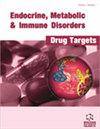遗传代谢性疾病的植入前基因检测?最新进展和当前挑战
IF 2
4区 医学
Q3 ENDOCRINOLOGY & METABOLISM
Endocrine, metabolic & immune disorders drug targets
Pub Date : 2023-12-19
DOI:10.2174/0118715303279986231211090830
引用次数: 0
摘要
导言先天性代谢错误(IEM)是一种先天性酶活性紊乱的遗传疾病。大多数为孟德尔常染色体隐性遗传,少数为线粒体遗传。在许多情况下,患儿出生后,父母会发现自己是该病的携带者,并担心后代复发的风险。胚胎植入前基因检测(PGT)可在胚胎移植到子宫前对其进行分析,防止遗传病遗传给后代,但这一程序对 mtDNA 遗传病的价值有限。方法对目前获准进行 PGT 的疾病清单进行了审查。资格审查程序与葡萄牙国家辅助生殖委员会(CNPMA)相同。对国际辅助生殖技术(ART)在 IEM 中的应用进行了回顾。结果截至 2022 年 7 月,有 23 种与 nDNA 中的有害变异有关的 IEM 疾病获准在葡萄牙进行 PGT。有可能患上未列入清单的疾病的夫妇,可在进行医学遗传学咨询后,请求专家委员会进行评估。要获得批准,疾病必须造成重大痛苦和/或过早死亡。由于申请数量增加,全球已有更多的 IEM 疾病获准进行 PGT。PT 不提供针对 mtDNA 的 ART。国际专家中心包括针对有据可查的特定变异和线粒体捐赠的 PGT。结论PGT 是降低遗传病遗传给后代风险的可靠方法。目前,葡萄牙接受这种技术的 IEM 疾病不多,但随着符合必要标准的疾病越来越多,这种技术的范围也在不断扩大。虽然在理论上很有吸引力,但低成功率和有限的可用性会让患者望而却步。确诊 IEM 疾病后,遗传咨询至关重要。临床医生和患者都必须了解现有的生殖选择及其局限性。本文章由计算机程序翻译,如有差异,请以英文原文为准。
Pre-implantation Genetic Testing in Inherited Metabolic Diseases? Stateof- the-art and current challenges
Introduction:: Inborn errors of metabolism (IEM) are genetic diseases involving congenital disorders of enzyme activities. Most follow Mendelian autosomal recessive inheritance and few follow mitochondrial inheritance. In many cases, after the birth of an affected child parents discover that have been the carriers for the condition and worry about the risk of recurrence in future offspring. Preimplantation genetic testing (PGT) can analyze embryos before their transfer to the uterus and prevent the transmission of hereditary conditions to descendants, however this procedure is of limited value in mtDNA conditions. Methods:: The list of diseases currently approved for PGT were reviewed. The process for eligibility, was as for the Comissão Nacional Procriação Medicamente Assistida (CNPMA), of Portugal (PT). Review of international practices for Assisted Reproductive Techniques (ART) in IEM was carried out. Results:: As of 07.2022, 23 IEM diseases associated with deleterious variants in nDNA were approved for PGT in PT. Couples at risk for conditions not included in the list can solicit an evaluation from an expert committee, after a medical genetics consultation. To qualify for approval, diseases must cause significant suffering and/or premature death. Due to a greater number of solicitations many more IEM conditions have been approved for PGT across the world. ART for mtDNA is not available in PT. International expert centers include PGT for specific well documented variants and mitochondrial donation. Conclusion:: PGT is a reliable approach to reduce the risk of transmission of a genetic condition to the offspring. The list of IEM disorders currently accepted for this technique in Portugal are small, but it is expanding, as many more diseases fit the necessary criteria. While appealing in theory, low success rates coupled with limited availability can be discouraging for patients. Genetic counselling is of paramount importance after the diagnosis of IEM diseases. It is important for both clinicians and patients to be made aware of the available reproductive options and their limitations.
求助全文
通过发布文献求助,成功后即可免费获取论文全文。
去求助
来源期刊

Endocrine, metabolic & immune disorders drug targets
ENDOCRINOLOGY & METABOLISMIMMUNOLOGY-IMMUNOLOGY
CiteScore
4.60
自引率
5.30%
发文量
217
期刊介绍:
Aims & Scope
This journal is devoted to timely reviews and original articles of experimental and clinical studies in the field of endocrine, metabolic, and immune disorders. Specific emphasis is placed on humoral and cellular targets for natural, synthetic, and genetically engineered drugs that enhance or impair endocrine, metabolic, and immune parameters and functions. Moreover, the topics related to effects of food components and/or nutraceuticals on the endocrine-metabolic-immune axis and on microbioma composition are welcome.
 求助内容:
求助内容: 应助结果提醒方式:
应助结果提醒方式:


